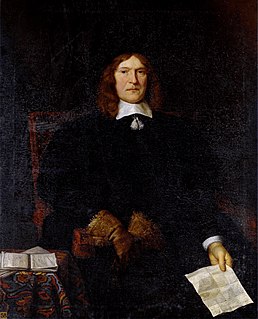Habeas corpus is a recourse in law through which a person can report an unlawful detention or imprisonment to a court and request that the court order the custodian of the person, usually a prison official, to bring the prisoner to court, to determine whether the detention is lawful.

Ex parte Merryman, 17 F. Cas. 144 (No. 9487), is a well-known and controversial U.S. federal court case that arose out of the American Civil War (1861–1865). It was a test of the authority of the President to suspend "the privilege of the writ of habeas corpus" under the Constitution's Suspension Clause, when Congress was in recess and therefore unavailable to do so itself. More generally, the case raised questions about the ability of the executive branch to decline enforcement of orders from the judicial branch when the executive believes them to be erroneous and harmful to its own legal powers.
The Constitution of the State of Hawaii refers to various legal documents throughout the history of the Hawaiian Islands that defined the fundamental principles of authority and governance within its sphere of jurisdiction. Numerous constitutional documents have been promulgated for the Kingdom of Hawaiʻi, Republic of Hawaiʻi, Territory of Hawaiʻi and State of Hawaiʻi. The first constitution was drafted by Kamehameha III. A few notable constitutions are the Bayonet Constitution of 1887 which stripped King Kalakaua of some decision making abilities without concurrence of his cabinet, and the Proposed 1893 Constitution of the Kingdom of Hawaii, a replacement of the Bayonet Constitution promulgated by Queen Liliuokalani, which set off a chain of events that eventually resulted in the overthrow of the Kingdom of Hawaii. Other notable documents include the Constitution of 1978 that created the Office of Hawaiian Affairs and declared the Hawaiian language to be one of the official languages of the state.
The writ of coram nobis is a legal order allowing a court to correct its original judgment upon discovery of a fundamental error that did not appear in the records of the original judgment's proceedings and would have prevented the judgment from being pronounced. The term "coram nobis" is Latin for "before us" and the meaning of its full form, quae coram nobis resident, is "which [things] remain in our presence". The writ of coram nobis originated in the English court of common law in the English legal system during the sixteenth century.

The Habeas Corpus Act 1679 is an Act of Parliament in England during the reign of King Charles II. It was passed by what became known as the Habeas Corpus Parliament to define and strengthen the ancient prerogative writ of habeas corpus, which required a court to examine the lawfulness of a prisoner's detention and thus prevent unlawful or arbitrary imprisonment.

Bushel’s Case (1670) 124 E.R. 1006 is a famous English decision on the role of juries. It also confirmed that the Court of Common Pleas could issue a writ of habeas corpus in ordinary criminal cases.
Extradition law in the United States is the formal process by which a fugitive found in the United States is surrendered to another country or state for trial, punishment, or rehabilitation. For foreign countries, the process is regulated by treaty and conducted between the federal government of the United States and the government of a foreign country. The process is considerably different from interstate or intrastate extradition. Florida, Alaska, and Hawaii do not extradite for a misdemeanor conviction that was convicted in the US, as of 2010. Some felonies are an exception in American law such as a crime that is violent in nature, or a sexual offense, or felony driving while intoxicated; they will entail extradition from all states in the United States. Theft charges and small drug crimes are the exception; for instance, if a minor crime is committed in Florida, a person apprehended in Idaho will not be extradited back to the original crime's jurisdiction. Federal charges are governed by US federal law and most states, with the exceptions of South Carolina and Missouri, have adopted the Uniform Criminal Extradition Act. In practice, Florida, Alaska, and Hawaii typically do not extradite if the crime in question is not a felony because of the associated costs of transporting the suspect and the housing fees that must be paid to the jurisdiction in which the accused is held until transported.
Habeas corpus is a recourse in law challenging the reasons or conditions of a person's confinement under color of law. A petition for habeas corpus is filed with a court that has jurisdiction over the custodian, and if granted, a writ is issued directing the custodian to bring the confined person before the court for examination into those reasons or conditions. The Suspension Clause of the United States Constitution specifically included the English common law procedure in Article One, Section 9, clause 2, which demands that "The privilege of the writ of habeas corpus shall not be suspended, unless when in cases of rebellion or invasion the public safety may require it."
Philippine habeas corpus cases are cases decided by the Supreme Court of the Philippines, which invoke the writ of habeas corpus.
The nature of international human rights law has been seemingly altered by Americans since the attacks on New York City and Washington, D.C. on September 11, 2001. The Guantanamo Bay detention camp is one example of recent developments that seem to disregard long standing human rights. The United States of America (USA) has pursued a 'seemingly deliberate strategy' to put suspected terrorists outside the reach of habeas corpus protections. Naval Station Guantanamo Bay serves as the location for a United States military prison in Cuba designed for the detention of non-citizens suspected of terrorist activity. At the time of its creation President Bush stated that its purpose was to respond to serious war crimes, primarily 'a new way to deal with terrorists'. The first camp was set up 3 months after the attacks on the twin towers and since then a human rights debate has begun over the legality of denying detainees the right to petition habeas corpus.
Ex parte Bigelow, 113 U.S. 328 (1885), was an application for a writ of habeas corpus to release the petitioner from imprisonment in the District of Columbia jail where he was held, as he alleges, unlawfully by John S. Crocker, the warden of the jail. He presents with the petition the record of his conviction and sentence in the Supreme Court of the District to imprisonment for five years under an indictment for embezzlement, and this record and the petition of the applicant present all that could be brought before the court on a return to the writ, if one were awarded.

Ricardo M. Urbina is a former United States District Judge of the United States District Court for the District of Columbia.

Archuleta v. Hedrick, 365 F.3d 644 was a pro se petition for a writ of habeas corpus filed in the U.S. Court of Appeals for the Eighth Circuit in October 2002, appealing the dismissal of a case brought by defendant Benjamin Archuleta. Archuleta had been found not guilty by reason of insanity of assault and subsequently ordered to be confined in a prison mental hospital by the United States District Court for the Western District of Missouri after his successful insanity defense, as he was evaluated by a psychiatrist as dangerous. His appeal challenged this confinement and "forced treatment", requested a withdrawal of his original insanity defense, and sought his unconditional release from custody.
Ahrens v. Clark, 335 U.S. 188 (1948), was a United States Supreme Court case that denied a federal district court jurisdiction to issue a writ of habeas corpus if the person detained is not within the territorial jurisdiction of the court when the petition is filed. The 6-3 ruling was handed down on June 21, 1948, with the majority opinion written by Justice William O. Douglas and the dissent written by Justice Wiley Blount Rutledge.

The 'Habeas Corpus Suspension, 12 Stat. 755 (1863), entitled An Act relating to Habeas Corpus, and regulating Judicial Proceedings in Certain Cases, was an Act of Congress that authorized the president of the United States to suspend the privilege of the writ of habeas corpus in response to the American Civil War and provided for the release of political prisoners. It began in the House of Representatives as an indemnity bill, introduced on December 5, 1862, releasing the president and his subordinates from any liability for having suspended habeas corpus without congressional approval. The Senate amended the House's bill, and the compromise reported out of the conference committee altered it to qualify the indemnity and to suspend habeas corpus on Congress's own authority. Abraham Lincoln signed the bill into law on March 3, 1863, and suspended habeas corpus under the authority it granted him six months later. The suspension was partially lifted with the issuance of Proclamation 148 by Andrew Johnson, and the Act became inoperative with the end of the Civil War. The exceptions to his Proclamation 148 were the States of Virginia, Kentucky, Tennessee, North Carolina, South Carolina, Georgia, Florida, Alabama, Mississippi, Louisiana, Arkansas, and Texas, the District of Columbia, and the Territories of New Mexico and Arizona.
The Habeas Corpus Act of 1867 is an act of Congress that significantly expanded the jurisdiction of federal courts to issue writs of habeas corpus. Passed February 5, 1867, the Act amended the Judiciary Act of 1789 to grant the courts the power to issue writs of habeas corpus "in all cases where any person may be restrained of his or her liberty in violation of the constitution, or any treaty or law of the United States." Prior to the Act's passage, prisoners in the custody of one of the states who wished to challenge the legality of their detention could petition for a writ of habeas corpus only in state courts; the federal court system was barred from issuing writs of habeas corpus in their cases. The Act also permitted the court "to go beyond the return" and question the truth of the jailer's stated justification for detaining the petitioning prisoner, whereas prior to the Act courts were technically bound to accept the jailer's word that the prisoner was actually being held for the reason stated. The Act largely restored habeas corpus following its 1863 suspension by Congress, ensuring that anyone arrested after its passage could challenge their detention in the federal courts, but denied habeas relief to anyone who was already in military custody for any military offense or for having aided the Confederacy.

The Taney Court heard thirty criminal law cases, approximately one per year. Notable cases include Prigg v. Pennsylvania (1842), United States v. Rogers (1846), Ableman v. Booth (1858), Ex parte Vallandigham (1861), and United States v. Jackalow (1862).

During the tenure of Morrison Waite as Chief Justice of the Supreme Court of the United States, the Supreme Court heard an unprecedented volume and frequency of criminal cases. In just fourteen years, the Court heard 106 criminal cases, almost as many cases as the Supreme Court had heard in the period from its creation to the appointment of Waite as Chief Justice. Notable cases include United States v. Cruikshank (1875), United States v. Reese (1875), Reynolds v. United States (1878), Wilkerson v. Utah (1879), the Trade-Mark Cases (1879), Strauder v. West Virginia (1880), Pace v. Alabama (1883), United States v. Harris (1883), Ex parte Crow Dog (1883), Hurtado v. California (1884), Clawson v. United States (1885), Yick Wo v. Hopkins (1886), United States v. Kagama (1886), Ker v. Illinois (1886), and Mugler v. Kansas (1887).
United States v. Morgan, 346 U.S. 502 (1954), is a landmark decision by the United States Supreme Court which provides the writ of coram nobis as the proper application to request federal post-conviction judicial review for those who have completed the conviction's incarceration.











